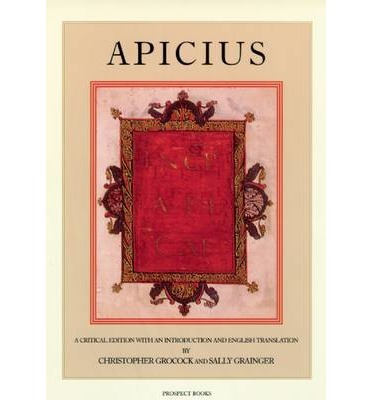
Apicius: A critical edition with an introduction and English translation
Sally Grainger and Christopher Grocock
Reviewed By Loreena Johnson
Of all the many translations of Apicius, this is the one I?d save if a fire broke
out. The kernel of this book was Sally?s PhD thesis with judicial editing and
input from Christopher Grogock to make it more readable. It is a beautiful ? if
hardcore academic ? consolidated translation of the various fragments of
Apicius de re Coquinaria around the world.
Scared? There is a ton of other cool stuff within the covers regarding the
social and environmental influences, glossaries, facsimilles of original bits and
a fabulous cross referencing index and bibliography. There are even
appendices reviewing the current arguments in academia about Garum
recipes and production.
As to recipes; along with the original and the translation, a select number of
the dishes also have Sally Grainger?s notes and further instructions on how a
modern cook can reproduce a Roman flavour profile. Finally, these recipes
have been trialled by a great cook as well as scholar (Sally is also the author
of ?The Classical Cookbook? with Andrew Dalby) ? they work, they are tasty,
and they won?t kill you or your guests.
[tabs] [tab title=”Publishers Blurb”] Apicius is the sole remaining cookery book from the days of the Roman Empire. Though there were many ancient Greek and Latin works concerning food, this collection of recipes is unique. The editors suggest that it is a survival from many such collections maintained by working cooks and that the attribution to Apicius the man (a real-life Roman noble of the 2nd century AD), is a mere literary convention. There have been many English translations of this work (and, abroad, some important academic editions) but none reliable since 1958 (Flower and Rosenbaum). In any case, this edition and translation has revisited all surviving manuscripts in Europe and the USA and proposes many new readings and interpretations. The great quality of this editorial team is while the Latin scholarship is supplied by Chris Grocock, Sally Grainger contributes a lifetime’s experience in the practical cookery of adaptations of the recipes in this text. This supplies a wholly new angle from which to verify the textual and editorial suggestions. [/tab] [/tabs]